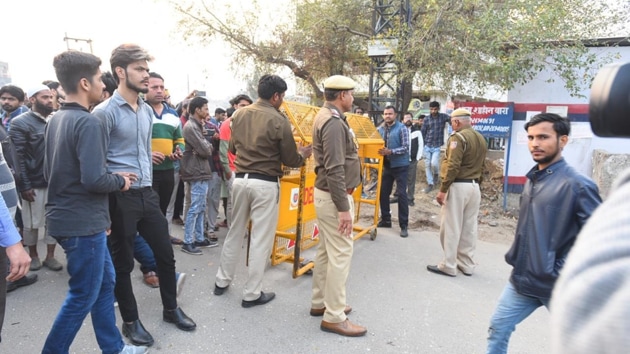Hurt at being labelled Pakistanis, Shaheen Bagh protesters tell SC
The affidavit listed the concerns and the views of the women who reaffirmed that they are proud citizens of the country and conveyed their anguish at being labeled as anti-national and Pakistanis.
Women at Shaheen Bagh protesting against the Citizenship Amendment Act (CAA) have told the Supreme Court in an affidavit filed through former Chief Information Commissioner (CIC) Wajahat Habibullah that the central government has not engaged in any dialogue with them to understand their concerns and that the top court should hear petitions challenging the controversial law at the earliest.

Habibullah, who is an intervenor in a plea in the Supreme Court seeking lifting of road blockade by anti-Citizenship Amendment Act protesters at Shaheen Bagh, told the top court in the affidavit last week that the protest is largely peaceful and that the women at the protest site had requested him to place their view point before the court.
The affidavit listed the concerns and the views of the women who reaffirmed that they are proud citizens of the country and conveyed their anguish at being labeled as anti-national and Pakistanis.
ALSO WATCH | People celebrate as Jamia to Noida road near Shaheen Bagh re-opens
“That while they are proud citizens of the country, they are deeply hurt at being abused and labelled as anti-national/outsiders/ traitors/ Pakistanis in various political speeches as well as a section of the media,” the affidavit said.
The protesting women were expressing peaceful dissent against the CAA since the controversial law along with the National Register of Citizens (NRC) could sound the “death knell for their survival and existence”, the affidavit stated.
They said that they chose the particular site for protest because “it gives them the much required security because it is flanked on both sides by the Shaheen Bagh colony”. Therefore, the chances of “threatened attacks on them are considerably less than they would have been if the protest had been held at any place away from the present site.”
Besides detailing the concerns expressed by the women protesters, Habibullah in the affidavit also stated that after personal inspection, he found that the police has unnecessarily barricaded roads unconnected to the protest and are “wrongly laying the blame on the protest.”
“It is these barricading of unconnected roads that has led to a chaotic situation”, Habibullah submitted.
Advocate Amit Sahni and BJP leader Nand Kishore Garg had moved the Supreme Court seeking lifting of road blockade on the Shaheen Bagh–Kalindi Kunj stretch.
The CAA, which was passed on December 12, 2019, amends Section 2 of the Citizenship Act, 1955, which defines “illegal migrants” by adding a proviso to Section 2 (1)(b). As per this new proviso, any person belonging to Hindu, Sikh, Buddhist, Jain, Parsi or Christian communities from Afghanistan, Bangladesh or Pakistan, and who have been exempted by the Central Government under the Passport (Entry into India) Act, 1920 or the Foreigners Act, 1946, shall not be treated as “illegal migrant”. Consequently, such persons shall be eligible to apply for citizenship by naturalisation, which is laid down under Section 6 of the 1955 Citizenship Act.
However, the Muslim community did not find a place in the proviso thereby excluding Muslim illegal migrants from availing the opportunity to apply for Indian citizenship, a benefit which was extended to illegal migrants from the other six communities by this amendment.
The exclusion of Muslim community from the CAA has led to widespread protests across the country, as has the linking of citizenship with religion. There have also been protests against a proposed countrywide NRC and the potential problems if it is carried out in conjunction with the CAA.
Shaheen Bagh has been the epicentre of such protests in the national capital.
Advocate Amit Sahni in his plea stated that the road closure at Shaheen bagh causes great inconvenience to public at large. The road closure and the consequent traffic diversion have led to the wastage of precious time energy and fuel besides overburdening the DND flyway, Akshardham and Ashram routes.
Sahni stated that while people have the right to protest, the same is subject to reasonable restrictions and protesters cannot be allowed to occupy public roads indefinitely.
Last Monday, the Supreme Court tasked senior advocate Sanjay Hegde and advocate Sadhana Ramachandran to mediate with the protesters to find a solution to the issue.
The court had remarked that while right to protest is a fundamental right, such demonstrations and protests cannot be held on public roads for indefinite period.






